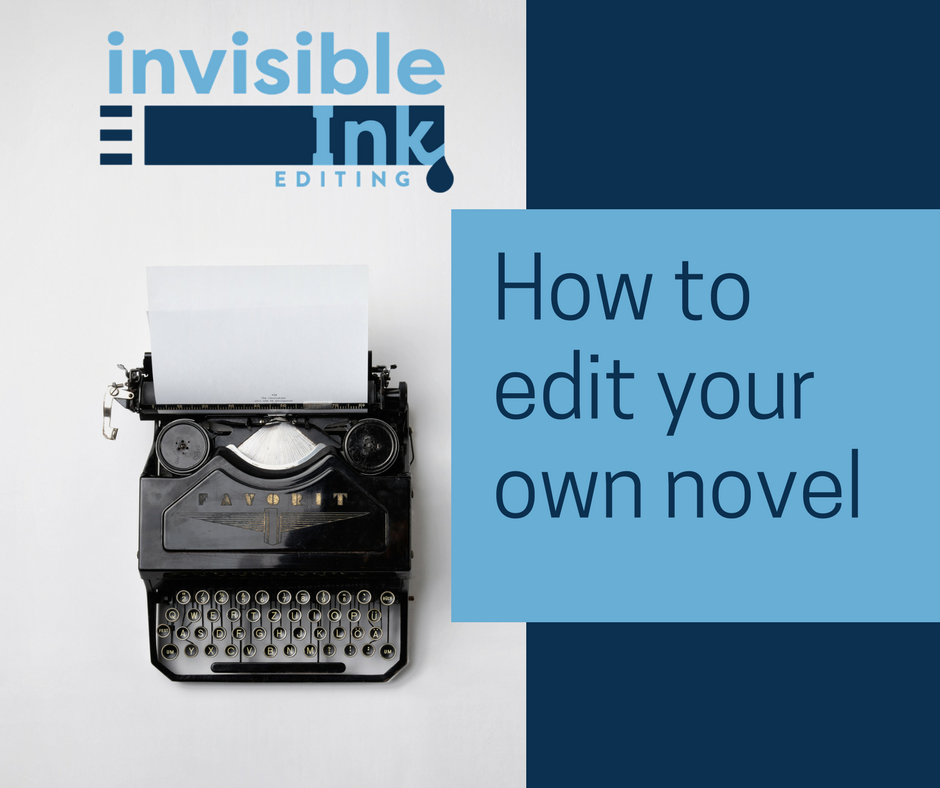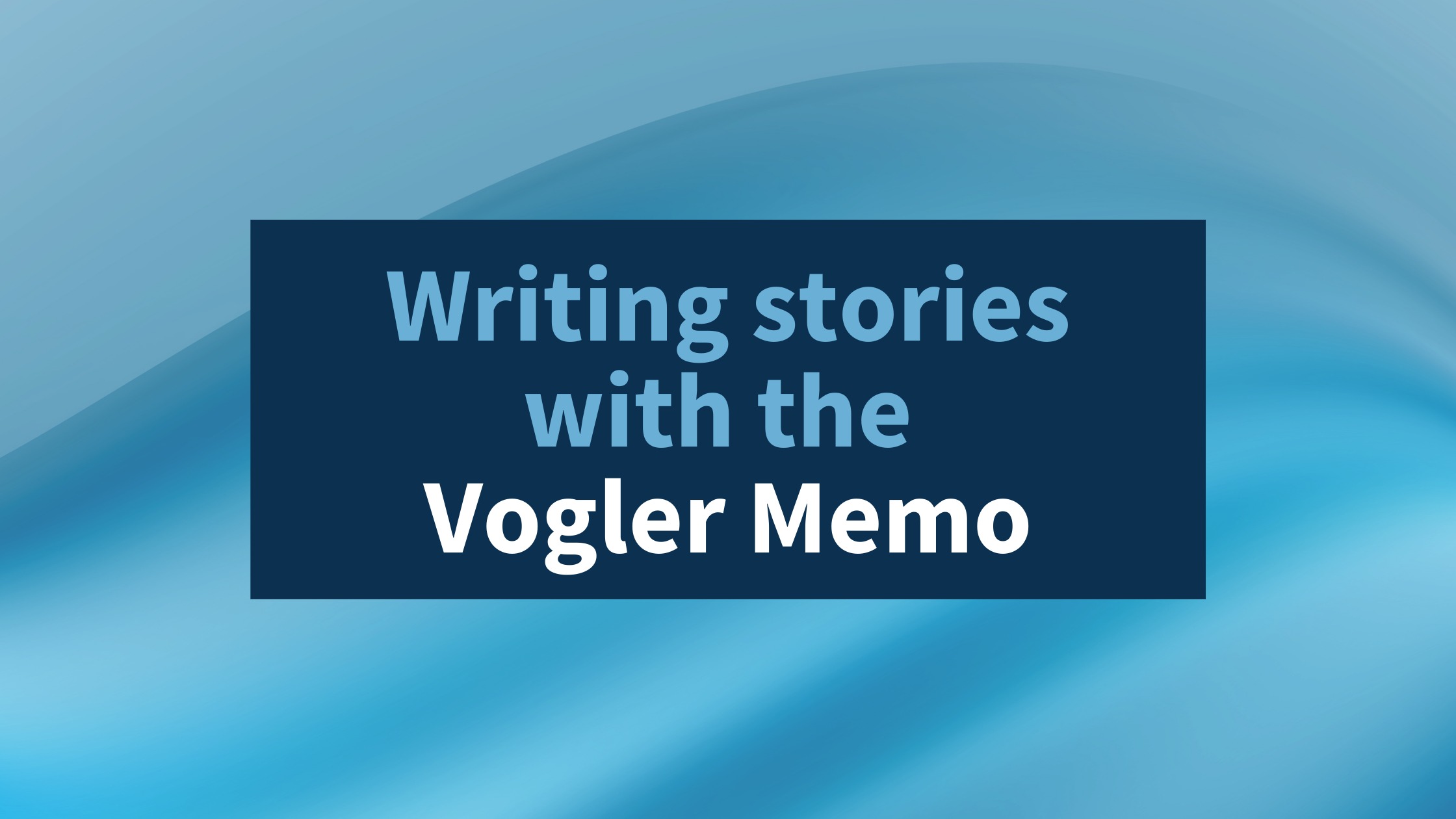A guide to self-editing a manuscript
When a new author submits their manuscript to us, one of the first questions we ask is, “Has this manuscript been edited before?” It may seem like a funny question coming from a group of book editors—after all, isn’t our job to take an unedited manuscript and clean it up?
Not exactly. In fact, we turn down a significant portion of manuscripts that have never been edited before. This isn’t because we don’t think new novelists have potential; rather, we know that even the best authors have to revise their own work before submitting it to a professional book editor.

RELATED: An author’s guide to the editing process
The self-editing process is just as important as the editing process you go through with your Invisible Ink editor. Submitting your novel before you have given it several self-revisions will waste both your time and your money. Instead, you should aim to make the novel as good as it can be on your own, then seek a professional second opinion.
Below are our top tips for editing your novel on your own.
Already done editing? Submit your manuscript for editing here.
When to begin self-editing
When in the process should you begin self-editing? The answer is different for every author. Some authors prefer to do long bouts of writing before rereading any of the work. Others have a more methodical approach, stopping to read each page or chapter after it’s complete.
Whichever style you prefer, self-editing slots into every step along the the editing process. You should self-edit your work before it goes to beta readers, and then again after you make changes based on their feedback. Another round of self-editing should happen between the beta reader stage and submitting your novel. From there, any time you write something new or make substantial changes to your manuscript, you’ll need to self-edit your work as it moves toward the final stage of novel proofreading.
Read your novel as you go
You may have heard stories of authors who do their writing blindfolded—literally—to stop themselves from reading (and subsequently cringing and deleting) their own writing. This may seem like a romantic idea, but reading your own work as you go is vital for several reasons. (We do recommend, however, going easy on your delete key when you’re self-editing if you find yourself deleting large passages.)
Rereading what you wrote recently helps you maintain continuity throughout your novel. It’s easy to forget small details, like what a character was wearing at the beginning of a scene, if you take breaks between writing sessions. Best practice is to at least reread the last few pages before you begin writing a new section of your novel.
You may also find that rereading small portions of your novel is a great way to help you overcome writer’s block. Not sure where to take the novel next? Go back and read a few chapters—ones you haven’t worked on in a while, or the last one you wrote. You’d be surprised how your own words can lead you in new directions if you’ve allowed them to “cool off.”
Finally, rereading as you write may help you pick up on some of your own writing quirks—phrases, punctuation marks, or words that may be too common in your prose. Eliminating these issues before you submit to your book editor will allow him or her to focus more on the meat of your book and less on correcting small issues.
Perform a final read-through
Editing while you go is important, but when you’ve finally written the last few words, it’s important to do a final read-through of your novel from start to finish. We’ll be honest: this can be a very painful process, not unlike hearing your own voice on a recording. It’s uncomfortable, but it’s a vital step when it comes to editing your own manuscript.
Reading the novel from start to finish will allow you to pick up on the smaller issues we mentioned above (like repetitive phrasing), but also on larger issues that may be plaguing your manuscript, such as undeveloped scenes, plot holes, or missing information.
Read your words out loud
It may feel silly, but reading your words out loud is one of the best ways to catch mistakes that you missed your own rereads.
When you read words out loud (even if you do it in a whisper), you’re less likely to skip over those errors, because you’ll stumble over your own words as you’re reading. It may be too much to reread the entire novel out loud, but doing so for at least the parts of the novel that you spent the most time on can make major improvements to the quality of your manuscript.
Perform a search for common writing mistakes
When you’ve read and reread your own words and can no longer bear to look at the page, it’s time to perform a search for common errors. The search function on Microsoft Word is an author’s best friend, so don’t be afraid to run a full search for issues like these:
Double spaces. Industry standard is a single space after a full stop, so running a search to eliminate errant double spaces is a wise self-editing tip.
Numerals. Do a search for the numerals 1 – 10 (we mean the actual numerals, not the written-out words like “one.”) There are many rules about numbers, so if you’re unsure, check your Chicago Manual of Style or ask your book editor for advice. (If you don’t have a book editor yet, give us a shout.)
Capitalization. The find-and-replace function on Word allows you to search specifically for words that are capitalized or uncapitalized. (Look for the box that reads “Match case.”) If you have a word that you know should either always be capped or always be uncapped, use this function to find any that you may have missed.
Your own common mistakes. Every writer has common typos. If you know you commonly misspell a word, such as using the wrong form of “compliment” vs. “complement,” then run a search for all variations you can think of to clear them up.
Online editing tools for writers
You’ve probably already run spell-check through Word a number of times on your manuscript. If you haven’t, that should be top priority! Unfortunately, Word’s grammar and spell-checker is far from perfect, and so using a few different tools can help make a big difference.
Before we get too deep in our recommendations of software to use, one caveat to note: none of these tools are foolproof or able to work on their own. There is no “set it and forget it” tool for checking grammar and spelling; for all of these tools, you must be an active part of the process. These tools will make recommendations to you, but you must be the final judge on whether you want to make the suggested changes.
Grammarly
Let’s start with what is arguably the most common online editing program out there: Grammarly. While the software still has its flaws, its grammar and spell-checker is far better than the one built into Word. It will likely find errors and mistakes Word missed, and if you sign up for an account, it will start to learn your most common mistakes and even provide you with stats on your writing.
Grammarly integrates with Word, but it can also be installed into your browser. This makes it not only useful for editing your manuscript but also any email or social media marketing you may be doing to promote your book and connect with fans.
Hemingway App
The Hemingway App is less focused on strictly grammar and more on things like sentence structure, passive voice, and repetition (issues your book editor would address during the line editing stage.) The free online app allows you to cut and paste in your own text, or you can pay a flat $20.00USD fee for the desktop app if you find you like it.
Our recommendation is to use the Hemingway App on passages that don’t feel quite right to you—perhaps they are too clunky, or too long, or have been called out by your beta readers or book editors as problematic.
Autocrit
This is one online editing tool that was designed specifically for fiction writers. Autocrit gives you a full report on a number of factors involving your writing, from repetitive vocabulary to sentence variation and even to volume of unnecessary filter words. It also gives handy recommendations on how to adjust the issues it calls out.
You can get a free report on a section of your manuscript, or upload the full document to get an overview on your first draft. However, the free report generated is only an overview—to get the full rundown, you would need to buy a subscription. Still, the overview is a great way to identify areas where you can improve your writing.
Slick Write
Unlike AutoCrit, Slick Write isn’t just for fiction writers, but it’s still a very useful tool with an intuitive and simple interface. Many of its features are similar to those mentioned above—you of course have a grammar checker, can run vocabulary checks, and get detailed, personalised statistics on your own writing.
The text reader is free—you simply need to copy paste your text to get information. On top of that, you’ll see some fun tools that help combat writer’s block and expand your vocabulary prowess.
One thing to note—Slick Write is made with students in mind, so some of the information is more applicable to academic writing than fiction writing, but it’s still a great tool.
What to do after you’ve finished self-editing
It can be tricky to know when the self-editing stage is over. Many writers feel like they could self-edit forever. While it’s a good idea to adjust your manuscript continually over a long period of time, there must be a moment when you decide you’ve done everything you can and are ready to move on to the next step of either submitting to your beta readers or your professional book editor.
If you find yourself feeling burnt out, or you are starting to feel discouraged and like you want to delete major sections of your novel, then it’s probably time to step away from your computer and leave your manuscript in the hands of someone else (namely, your editor).
Be sure to make a list of the issues you think are outstanding with your manuscript—writing out these kinds of insights will not only be cathartic but also will help your editor know what particular issues you’d like them to focus on.
If you’ve recently finished self-editing your manuscript, we’d love to hear from you. Just submit your novel manuscript, and one of our editors will be in touch.





